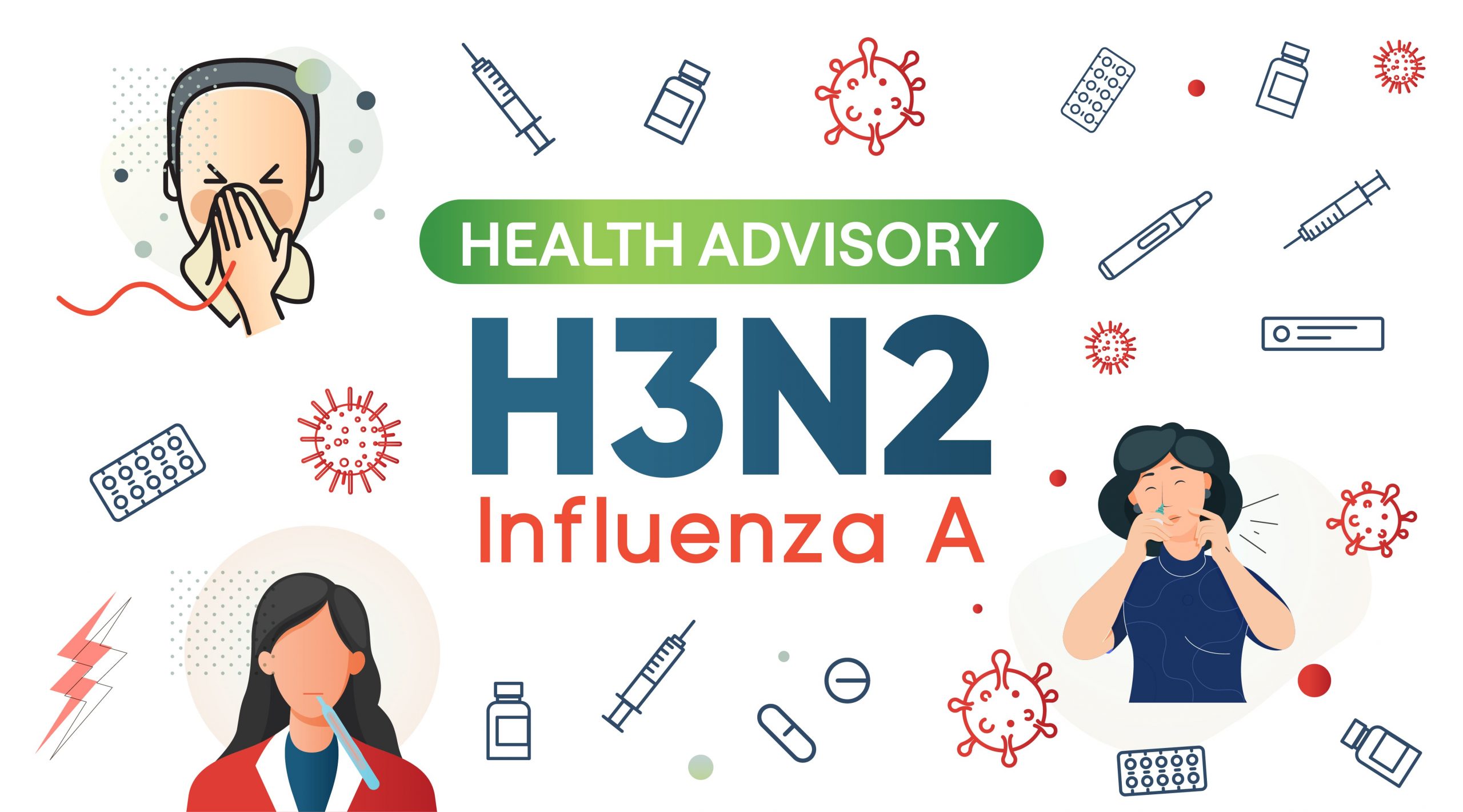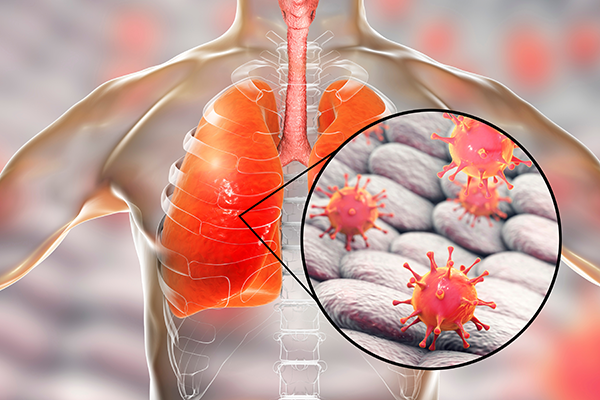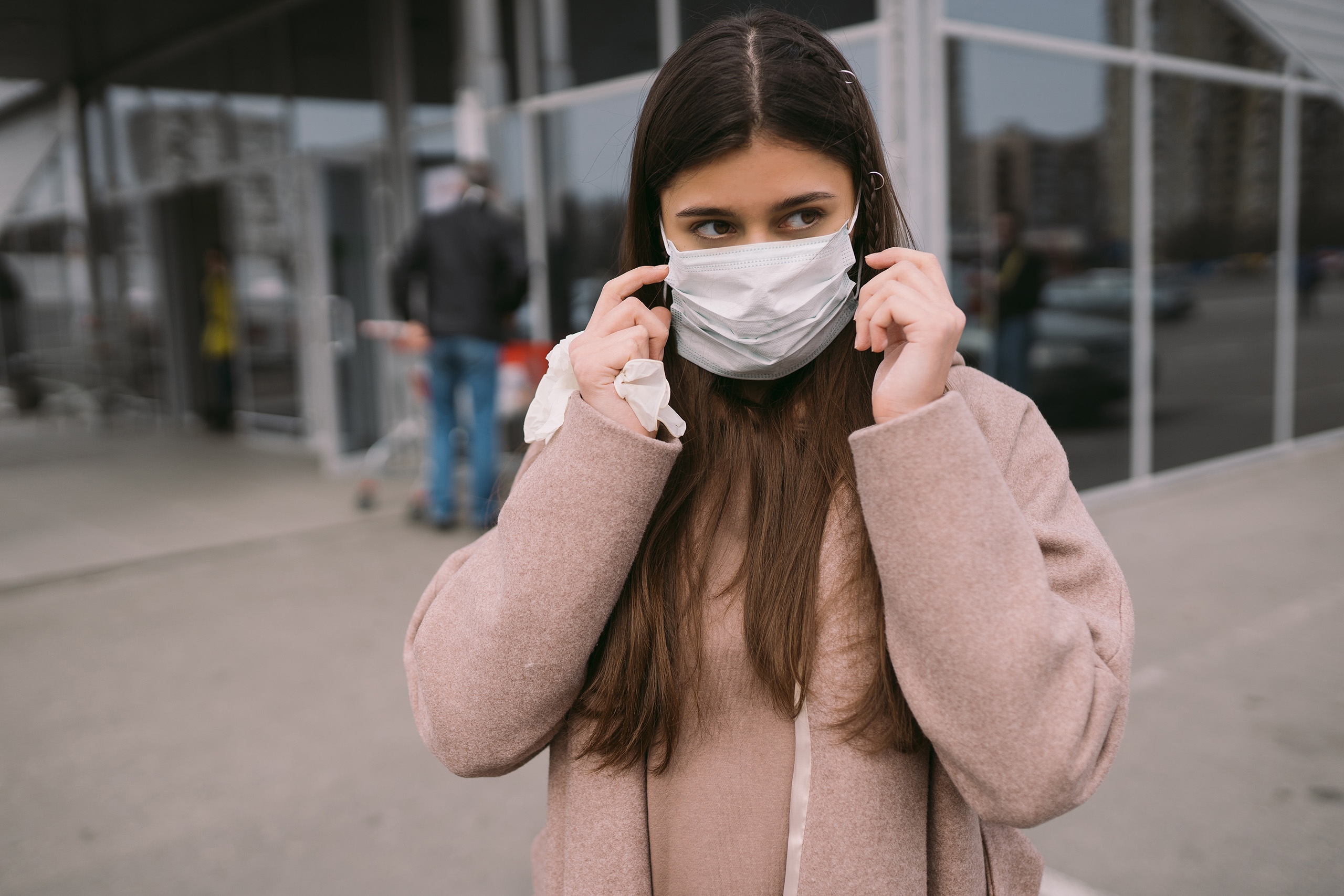
Health Advisory for H3N2 Virus
What is the H3N2 virus?
H3N2 influenza is a type of influenza virus that can cause respiratory illness in humans. It is a highly contagious respiratory illness that can cause mild to severe sickness, and in some cases, can be life-threatening, especially for those with underlying health conditions or weakened immune systems.
It is a seasonal virus, and the occurrence of this infection normally peaks during seasonal changes. In India, H3N2 cases are on the rise which has become a matter of serious concern for all. The drastically changing weather from severe cold to sudden warm temperatures are also a reason to blame.
Current Situation in India:
So far, India reported 9.66 lakh cases of flu in 2023, and 15,826 affected patients were hospitalized with severe acute respiratory
illness. Out of these, 451 were confirmed cases of H3N2, and two infected patients succumbed to the virus.
How is it spread?
H3N2 influenza is highly contagious and can spread in the following ways if adequate precautions and preventive measures are not followed.
- From person to person through droplets generated when an infected person talks, coughs, or sneezes.
- By touching a surface contaminated with the virus and then touching one’s mouth or nose.
Vulnerable Group:
The virus usually preys on individuals below the age of 15 years or above 50 years of age. Children and those with co-morbidities like asthma, diabetes, heart disease, weakened immune systems, and neurological or neurodevelopmental conditions are at a higher risk.
What are the common signs & symptoms of H3N2?
H3N2 carries symptoms that are similar to any other seasonal flu. These include chronic cough, fever, body ache and headache, sore throat, a runny or stuffy nose, and extreme fatigue. In some cases, the flu may lead to nausea, vomiting, and also diarrhea. Occasionally, an infection caused by H3N2 generally lasts for five to seven days and the fever starts turning away after three days. However, the coughing can persist for up to three weeks.

What are the Do’s & Don’ts?
Cautions
- Avoid self-medication and do not take antibiotics without consulting a doctor.
- Avoid contact with people suffering from H3N2 or any other seasonal flu.
- Avoid going in crowded or public areas if you feel infected with any of the symptoms.
- It is also advised to those who are at higher risk for severe
- illness from the flu, such as the elderly and individuals with underlying health conditions, to take extra precautions to protect themselves. This includes avoiding large gatherings and maintaining social distancing whenever possible.
Precautions
- Regularly wash your hands with water and soap.
- Wear face masks, especially in crowded areas.
- Avoid touching your nose and mouth.
- Cover your nose and mouth properly while coughing and sneezing.
- Stay hydrated and consume plenty of fluids.
- Always carry a pocket sanitizer.
- A healthy diet that includes plenty of fruits and vegetables can also play a significant role in improving immunity.
- Maintain social distancing wherever necessary.
How effective are Flu Vaccinations?
The flu vaccination protects us against various types of influenza and reduces the chances of severe symptoms, hospitalization, and other complications. Therefore, it becomes relevant for everyone but more so for the elderly and those with chronic conditions such as diabetes, heart disease, etc. to take the vaccination.
HCL Healthcare Medical Helpline
At HCL healthcare, we are taking additional precautions to ensure the safety of our patients and staff during the flu season. This includes regular disinfection of our facilities, wearing masks and other personal protective equipment, and screening patients for flu-like symptoms.





